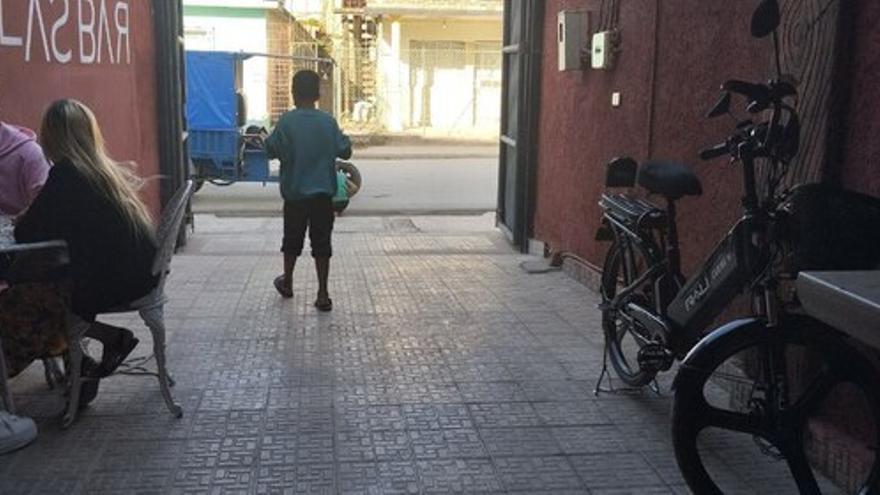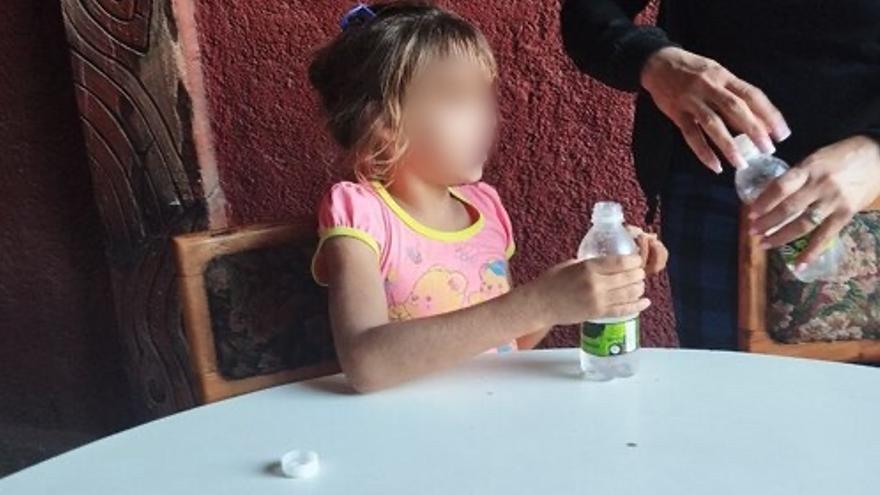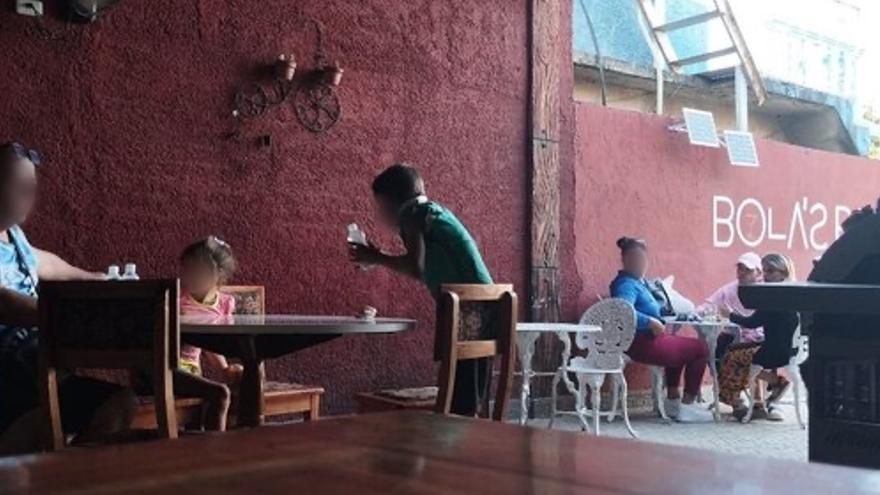
![]() 14ymedio, Miguel García, Holguín, January 6, 2024 — The youngest is called El Gatico [The Kitten] because he can sneak through any hole, jumps over walls and appears in the most unexpected places. She responds to the name of Rosita, and from the age of five she has been asking for money on the streets of Holguín. She and other children have formed a group who wander in the cafes, bars and restaurants.
14ymedio, Miguel García, Holguín, January 6, 2024 — The youngest is called El Gatico [The Kitten] because he can sneak through any hole, jumps over walls and appears in the most unexpected places. She responds to the name of Rosita, and from the age of five she has been asking for money on the streets of Holguín. She and other children have formed a group who wander in the cafes, bars and restaurants.
In the private Bolas Bar, located in the popular neighborhood of Pueblo Nuevo, they move between the tables, get on top of the customers begging them to share some of their food or, instead, to slip some bills in their hands. Rare is the day when these children with emaciated bodies and worn clothes, undermined by malnutrition, do not appear in the area.
Despite their young ages, which range from six to 14 years old, the children who make up this group sleep many nights on the street. Their parents, some alcoholics, others ill with HIV and all very poor, urge them to look outside their homes for everything that can help them survive on a day-to-day basis. Food, money, some clothes torn from a clothesline or a light bulb stolen from a doorway: everything works for them.

“This is one of the most critical cases in Holguín, and the State does nothing about it despite the reports we have made,” says Marcia, a social worker who investigated the situation of the children and presented a report on their vulnerability. “These children have been in this situation for years; the girl has been begging on the street since she was five years old. At first they were with an adult, but now that she is 11, she goes alone.”
“Someone passed through Pueblo Nuevo and took a photo of Rosita sleeping on the street after midnight. She goes to elementary school, but in the afternoons and evenings she dedicates herself to begging. Many times she goes barefoot because she doesn’t even have shoes,” says the social worker. “In these days when the temperatures dropped, they were without coats, with very few clothes.”
Several complaints to the local authorities have ended in evasive and bureaucratic responses. “Once they fined Rosita’s mother, but that’s not what needs to be done. She is also a victim. What is needed is to help that family, support them and get that girl and everyone else off the streets before a tragedy occurs,” the woman points out.
Several complaints to the local authorities have ended in evasive and bureaucratic responses
As the days go by, some try to help by buying the children in the group some food or giving them some Cuban pesos, but the fear of the majority is that “their numbers are increasing,” says a neighbor of Pueblo Nuevo. “The one you see there has already formed his own group of children to ask for money; before he belonged to the one his brother created,” he explains to this newspaper. “That other one is not from this neighborhood but arrived and now sleeps in the doorways.”

“They don’t want people to take photos because they obviously don’t want to be identified. They climb the balconies of the buildings. The Directorate of Attention to Minors of the Ministry of the Interior and the Prosecutor’s Office know about these cases, because the social workers have denounced this a lot, and both the Communist Party and the local government are aware,” says Marcia.
“The life that Rosita and El Gatico are leading, in addition to the other children, is known to everyone, but there’s a lot of talk and little action,” she says bitterly. Between the walls, wine red, of the Bolas Bar, a little one stretches his hand and asks for a soft drink from a customer who is eating there with his family. After receiving a bottle of lemon soda, the child takes a long drink and runs away.
Translated by Regina Anavy
____________
COLLABORATE WITH OUR WORK: The 14ymedio team is committed to practicing serious journalism that reflects Cuba’s reality in all its depth. Thank you for joining us on this long journey. We invite you to continue supporting us by becoming a member of 14ymedio now. Together we can continue transforming journalism in Cuba.
